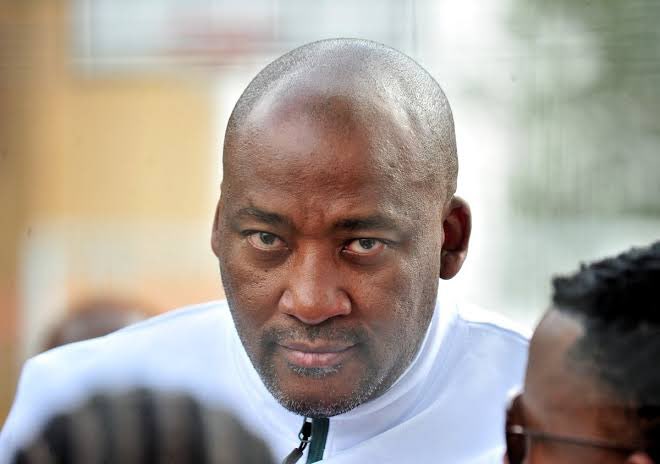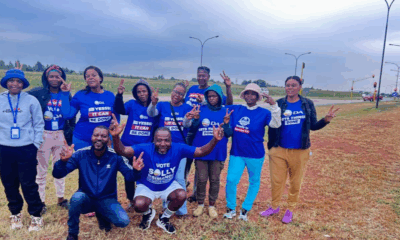News
SAHRC Drags Gayton McKenzie to Equality Court Over Racial Slurs in Old Tweets

A Cabinet minister in the dock
South Africa’s political stage has seen its fair share of drama, but this week, the spotlight is firmly on Minister of Sports, Arts and Culture, Gayton McKenzie. The South African Human Rights Commission (SAHRC) has announced that it will urgently haul McKenzie before the Equality Court over historic tweets that included the use of the k-word, a slur so deeply rooted in South Africa’s painful past that it still triggers raw emotions today.
The tweets, posted between 2011 and 2017, predate McKenzie’s time in Parliament and Cabinet. But their resurfacing has stirred new controversy, especially given his recent outspokenness on race-related debates in the country.
Why old words still matter
For many South Africans, especially those who lived through the brutality of apartheid, the k-word is more than just offensiveit is an echo of oppression, humiliation, and violence. Under South African law, words don’t need to carry intent to harm to be deemed unlawful; their impact on dignity, equality, and social cohesion is just as critical.
This is where the SAHRC steps in. After receiving multiple complaints from individuals and political parties, the commission concluded that McKenzie’s tweets could be a prima facie violation of the Promotion of Equality and Prevention of Unfair Discrimination Act. Acting under its statutory powers, it has decided to let the Equality Court determine whether McKenzie’s past words cross the constitutional line.
McKenzie hits back
Unsurprisingly, the Patriotic Alliance leader isn’t taking this lying down. He’s accused the SAHRC of moving too hastily, even claiming the commission “defamed” him by publicizing its findings before giving him a fair chance to respond.
McKenzie has also suggested that the process was flawed because official correspondence was sent to an outdated email address. His main defense? That none of his tweets were intended to incite harm, promote hatred, or fuel division.
But the law doesn’t just weigh intention, it looks squarely at the damage words can cause, even years later.
Public and political reaction
On social media, reactions are divided. Supporters of McKenzie argue that he is being “witch-hunted” for comments made long before his time in government. Others say this case is about accountability and the principle that leaders, especially Cabinet ministers, must be held to higher standards.
It’s not the first time South Africans have seen public figures face consequences for offensive speech. From Penny Sparrow’s racist rants to Vicki Momberg’s widely publicized conviction, the courts have repeatedly underscored that harmful language cannot be brushed off as “just words.”
Why this case matters now
The timing is significant. McKenzie’s old tweets only resurfaced after a storm erupted over racially charged comments targeting the Coloured community in a podcast episode. His own interventions in that debate reopened the lid on his Twitter history, sparking the complaints that now underpin the SAHRC’s legal case.
This has placed McKenzie in an awkward political position: defending himself against accusations of racism and xenophobia while leading a party that often positions itself as the voice of marginalized communities.
Beyond McKenzie: A broader push for accountability
The SAHRC’s decision to go to court doesn’t just affect one man’s reputation. It signals a broader determination to hold influential figures accountable, no matter when their words were said or how powerful they’ve since become.
The commission is currently handling several other sensitive cases, from racial tensions at Knysna High School to the fallout of the same controversial podcast that reignited the debate around McKenzie’s tweets.
In a country where the scars of racism still run deep, the SAHRC’s action is a reminder that free speech has limits when it collides with dignity and equality.
As this case heads to the Equality Court, South Africans are left asking: Can a politician reinvent themselves and escape the shadow of their past words, or do those words follow them into every office they hold?
The Equality Court’s ruling on Gayton McKenzie will not just determine the fate of one ministerit could set a precedent for how South Africa deals with historical speech in an age where nothing on the internet ever truly disappears.
{Source: IOL}
Follow Joburg ETC on Facebook, Twitter , TikTok and Instagram
For more News in Johannesburg, visit joburgetc.com



























